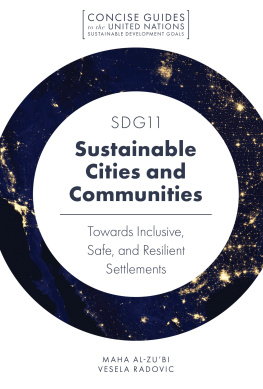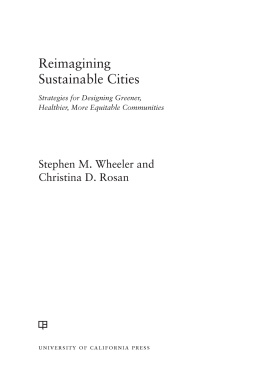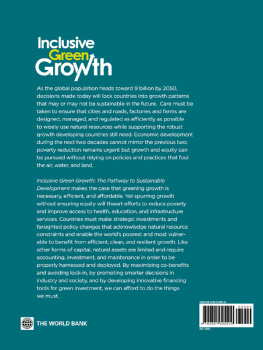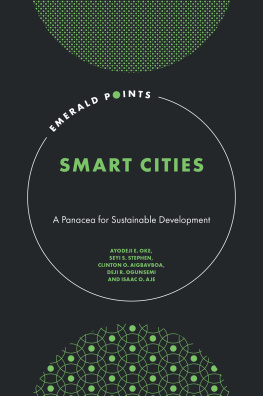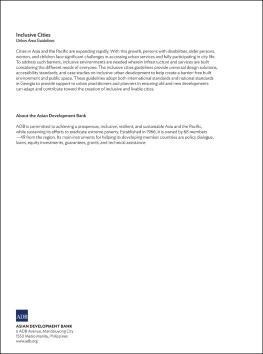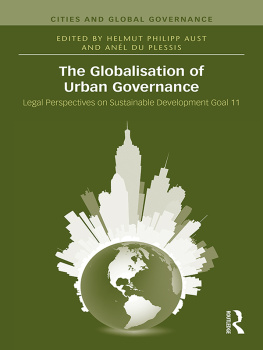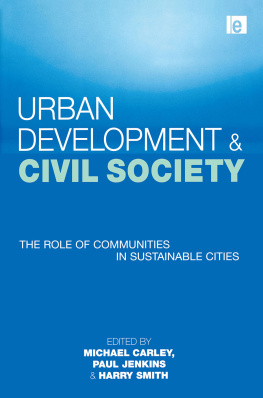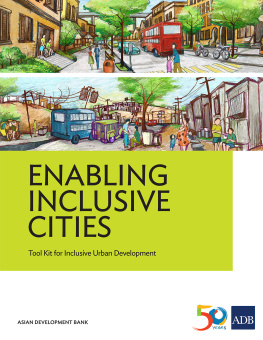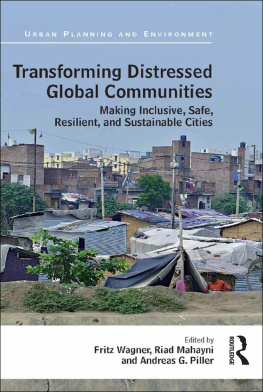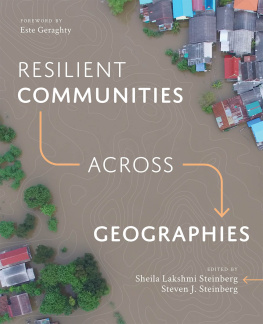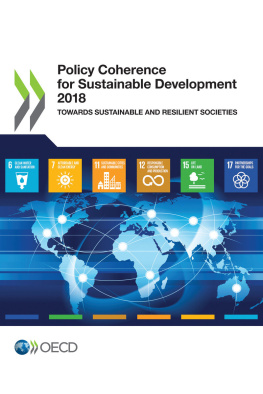SDG11 SUSTAINABLE CITIES AND COMMUNITIES
CONCISE GUIDES TO THE UNITED NATIONS SUSTAINABLE DEVELOPMENT GOALS
Series Editors
Walter Leal Filho
World Sustainable Development Research and Transfer Centre, Hamburg University of Applied Sciences
Mark Mifsud
Centre for Environmental Education and Research, University of Malta
This series comprises 17 short books, each examining one of the UN Sustainable Development Goals.
The series provides an integrated assessment of the SDGs from an economic, social, environmental and cultural perspective. Books in the series critically analyse and assess the SDGs from a multi-disciplinary and a multi-regional standpoint, with each title demonstrating innovation in theoretical and empirical analysis, methodology and application of the SDG concerned.
Titles in this series have a particular focus on the means to implement the SDGs, and each one includes a short introduction to the SDG in question along with a synopsis of their implications on the economic, social, environmental and cultural domains.
SDG11 SUSTAINABLE CITIES AND COMMUNITIES
TOWARDS INCLUSIVE, SAFE, AND RESILIENT SETTLEMENTS
BY
MAHA AL-ZUBI
University of Calgary, Canada
VESELA RADOVIC
Belgrade University, Serbia
United Kingdom North America Japan India
Malaysia China
Emerald Publishing Limited
Howard House, Wagon Lane, Bingley BD16 1WA, UK
First edition 2018
Maha Al-Zubi and Vesela Radovic. Published under an exclusive licence
Reprints and permissions service
Contact: permissions@emeraldinsight.com
No part of this book may be reproduced, stored in a retrieval system, transmitted in any form or by any means electronic, mechanical, photocopying, recording or otherwise without either the prior written permission of the publisher or a licence permitting restricted copying issued in the UK by The Copyright Licensing Agency and in the USA by The Copyright Clearance Center. Any opinions expressed in the chapters are those of the authors. Whilst Emerald makes every effort to ensure the quality and accuracy of its content, Emerald makes no representation implied or otherwise, as to the chapters suitability and application and disclaims any warranties, express or implied, to their use.
British Library Cataloguing in Publication Data
A catalogue record for this book is available from the British Library
ISBN: 978-1-78756-922-5 (Print)
ISBN: 978-1-78756-921-8 (Online)
ISBN: 978-1-78756-923-2 (Epub)
CONTENTS
List of Illustrations
About the Authors
Acknowledgments
ABOUT THE AUTHORS
Maha Al-Zubi, PhD, is Associate Consultant and Member of the Board of Directors of Plan: NET Limited, Calgary, Canada. Dr Al-Zubi, who specialises in environmental policy design, energy environmental systems and sustainable development, conducts most of her research in the Middle East region, focussing on the Arab cities, with the goal of proposing local climate policy and principles for governance of climate change adaptation and mitigation. Dr Al-Zubi has extensive involvement in managing internationally funded projects with the UNDP, WB, GIZ, etc., and is actively fostering interdisciplinary approaches to real-world energy, water and environmental issues. Dr Al-Zubi has published several papers related to climate change governance, green roof policy and the energywaterfood nexus.
Vesela Radovic, PhD, is an Associate Professor and Senior Researcher at the Institute for Multidisciplinary Research, Belgrade University, Serbia. She has a long record of experience in the area of sustainable development. She is an expert in the area of environmental protection and disaster management. She spent a year with the Fulbright/Hubert Humphrey Fellowship at Tulane University, School of Public Health and Tropical Medicine, Department of International Health and Development, New Orleans, LA. During that year, in the United States, her focus was on public policy making, emergency preparedness and environmental protection. Dr Radovic has published a book, Environmental Security Evaluation and Contemporary Approach, and numerous articles at home and abroad. She has participated in many national and international projects and works as a regional expert in the sustainable development project.
ACKNOWLEDGEMENT
The authors would like to thank Professor Ivana Stojiljkovic for her valuable input, particularly the contribution to The Cross-Cutting Nature of SGD11 section.
INTRODUCTION
As current projections indicate that the majority of the worlds future population will live in urban areas, cities play a central role in the pursuit of sustainable development. This recognition materialised through the inclusion of Sustainable Development Goal 11 (SDG11): Make cities and human settlements inclusive, safe, resilient and sustainable in the post-2015 goals. In order to strengthen resilience, adaptive capacity and adaption to climate impact, related hazards and associated risks, cities need to have a greater role in the local development of natural resource planning and management, with broader access to resources and a more decentralised governance structure. This book will use empirical analysis to address challenges associated with SDG11 implementation such as localising actions, cross-cutting, preparing data and indicators, establishing processes and structures to measure SDG progress and communicating the SDG to a wider audience.
The book consists of three chapters orienting readers new to the SDG agenda and illustrating how to approach SDG11 implementation at a local level. Chapter 1 provides insights into the importance of cities in SDG discourse. The chapter explains the role of cities and human settlements in achieving sustainable development and explores the interactions between different international discourses on cities, such as the sustainable agenda 20152030, the Paris Agreement, the Sendai Framework for Disaster Risk Reduction 20152030 (SFDRR) and Habitat-III and the New Urban Development Agenda (NUDA). Chapter 2 describes briefly the importance of SDG localisation and related processes, the cross-cutting nature of SDG11 and the process of initiating SDG11 implementation; it explores step-by-step suggestions for local authorities and stakeholders as they define, plan and implement strategies for achieving SDG11. It further elaborates on implementation challenges, particularly communication, localising actions, reporting and its cross-cutting nature. Chapter 3 explores SDG stories, reflecting on policies and strategies from different cities, countries and regions the Middle East (Amman City), Europe (Serbia) including actions that integrate SDGs into local, regional and national plans to improve natural resources management, reduce greenhouse gas (GHG) emissions and develop urban adaptation and resilience strategies to help decision makers, planners and practitioners achieve SDG11. It also promotes an enabling environment, methodology, tools and mechanisms, which can be adapted to different contexts to help achieve sustainable development.

